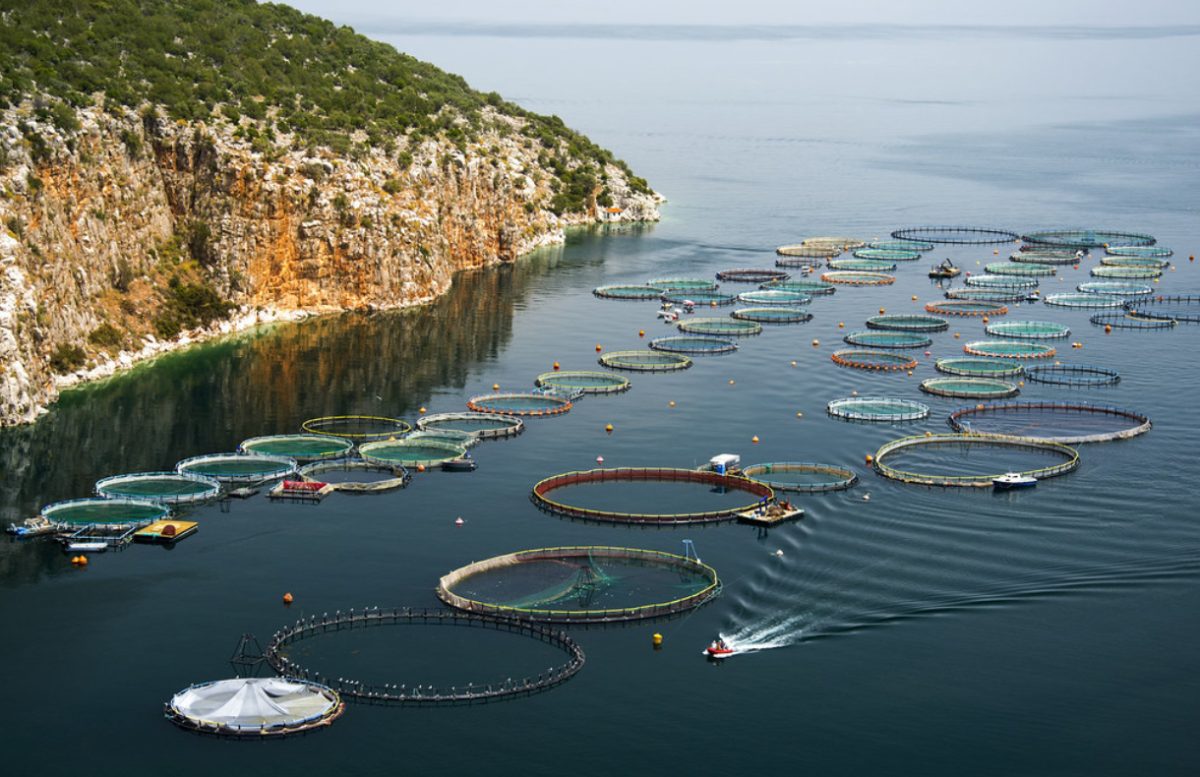When you tell people that you’ve gone vegetarian for environmental purposes, most assume that it is because of the humanitarian aspect of meat consumption. Humane reasons aside, many people, including myself, are vegetarian because of the environmental issues that the meat and fish industries add to and create. Rarely do the majority of people understand the true reasoning behind this decision and the impact that both livestock and fish farming have on the environment.
Consuming meat and fish has become a normalcy in our lives. For some, meat is essential to their diets and they cannot imagine getting nutrients, like protein, from any other products. If people truly knew the severe impacts of livestock and fish farming, maybe they wouldn’t be so inclined to consume animal products on a daily, even mealy basis.
Global meat consumption has been on the rise since the 1980s, and is expected to continue. According to the National Library of Medicine, it is projected that milk and meat production will continue to increase in following years. As Americans especially, we consume a LOT of meat. Think about the type of food that we associate with America: hot dogs, burgers, fried chicken and bacon. As more research is being done on environmental issues, people are becoming aware of the negative impacts of animal farming.
A Food and Agriculture Organization (FAO) report found that, “The meat industry has a marked impact on a general global scale on water, soils, extinction of plants and animals, and consumption of natural resources, and it has a strong impact on global warming.”
Now, the meat industry is a broad term that could include cows, pigs, poultry, fish etc. For the purpose of this article, we will separate all these types of products into two categories to discuss their impacts. The first is livestock farming, which will include cows, pigs and poultry, and the second is fish farming.
The main impacts of livestock farming are waste, pollution of air and water and the loss of biodiversity. Livestock farms have grown and developed alongside demand for meat products and now cover one third of the world’s total land and two thirds of its agricultural land. Let me emphasize this: one third of the land on Earth is used for livestock farming. One third of the land is inhabited by animals that we will slaughter and consume. That is by no means an insignificant amount of space. To get all this space cleared for use, extensive deforestation and destruction of natural habitats has occurred. According to the UN Food and Agriculture Organization, livestock grazing alone contributes to almost 40% of deforestation worldwide. Major effects of habitat destruction, such as deforestation, include extreme loss of biodiversity in Earth’s ecosystems.
Additionally, domestic animals naturally release carbon dioxide and other greenhouse gases into the atmosphere. On a small scale, these emissions would not be an extensive issue, but because of the large amount of concentrated livestock on farms, it is. Most emissions from livestock are the gases carbon dioxide, nitrous oxide, methane and ammonia. Some calculations estimate that the livestock industry is responsible for at least 51% of the greenhouse gas emissions and 35-40% of the total methane emissions. These gases contribute to the greenhouse effect that is produced by large amounts of them entering and staying in the atmosphere.
A common theme present in most of the environmental issues is excess. In this case, livestock farming happens on such a large scale that so many resources are wasted in the process, particularly water. Humans are quickly using up the limited sources of freshwater on Earth. Oftentimes, we use tomorrow’s water rations for today’s purposes, including using it on livestock farms. Not only does livestock farming contribute to water waste, but it plays a part in pollution. Livestock farming contributes to water pollution when rainfall runoff from pasture enters water sources, infecting it with animal excreta, antibiotics, hormones, fertilizers, pesticides and more substances that we certainly don’t want in our sources for drinking water.
As you may have gathered, many environmental issues have similar general impacts. Some of the issues that fish farming contributes to have a similar effect as those of livestock farming, but they are unique. Many people assume that fish products are better for the environment than other meat products, but this is a common misconception. They aren’t.
Commercial fish farming has similar general impacts as livestock farming, including waste, pollution, and loss of biodiversity. To begin, waste from fish feed isn’t able to just be removed from the water. This waste then pollutes the bodies of water that contain extensive fish farms. Additionally, the large amounts of feces from the concentrated population of fish in fish farms pollutes the water and marine environment in that location. Most fish farms claim that their farms remain clean, healthy and they do not use extensive chemicals and pesticides to efficiently raise the fish populations, yet these claims are false. In many cases, chemicals and pesticides contaminate the area surrounding fish farms, which then impact marine life and ecosystems. Farmed fish commonly get infected by disease and parasites as well, due to their proximity.
All the disease and pollution that comes hand-in-hand with fish farms inevitably spread to surrounding ecosystems. This impacts the whole ecosystem. Wild fish get infected with disease or parasites. An infamous example of this is sea lice, causing their populations to decrease. Habitat loss occurs when areas are converted into dirty fish farms. Water pollution applies pressure to the marine environments, creating a general problem. Countless ecosystems are lost due to these impacts resulting in a loss of marine biodiversity, which in turn has domino effects on other environmental systems.
Now, one of the simpler ways to try and negate these impacts is to simply cut out meat and fish and become vegetarian or, if you’re feeling really crazy, vegan. This is much easier said than done, and many people don’t want to live that kind of lifestyle, as meat has become essential to many people’s lives. Being cognizant and aware of where you get your meat from and how much meat you consume is the next best thing. Getting meat from more local sources and even trying to simply cut down on the amount you consume can still go a long way.
If this topic interests you, I strongly recommend watching the documentary “Eating Our Way to Extinction.” It is an enlightening documentary that provides further and more in-depth information on the environmental impacts and flaws of livestock and fish farming.









